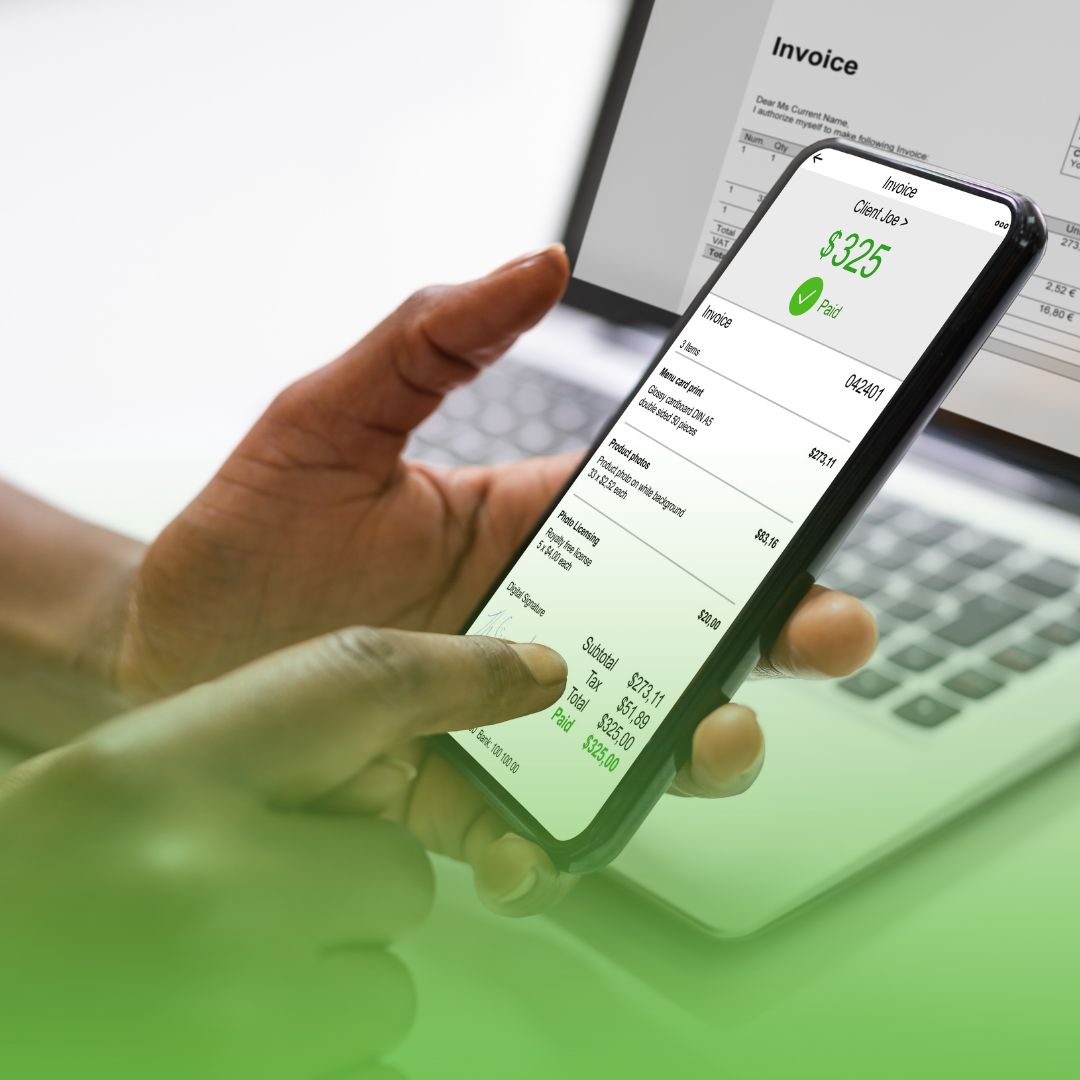Retailers looking to reduce waste and adopt eco-friendly practices can benefit from eco friendly retail reducing waste with Delta 1st POS digital receipts. Traditional paper receipts contribute significantly to environmental waste, consuming resources like trees and water. Delta 1st POS offers a seamless way for businesses to transition to digital receipts, helping to cut down on paper waste, reduce their carbon footprint, and appeal to environmentally-conscious consumers. This article explores how Delta 1st POS digital receipts can enhance sustainability efforts in retail.
Key Takeaways
- Digital receipts significantly reduce paper waste and environmental impact, aligning with consumer demand for sustainable practices.
- Retailers using Delta 1st POS can optimize operations, achieve cost savings, and enhance customer experiences through automated and accessible digital receipts.
- Transitioning to digital receipts requires proper planning and customer education to overcome challenges related to user acceptance and data security.
The Role of Digital Receipts in Reducing Waste
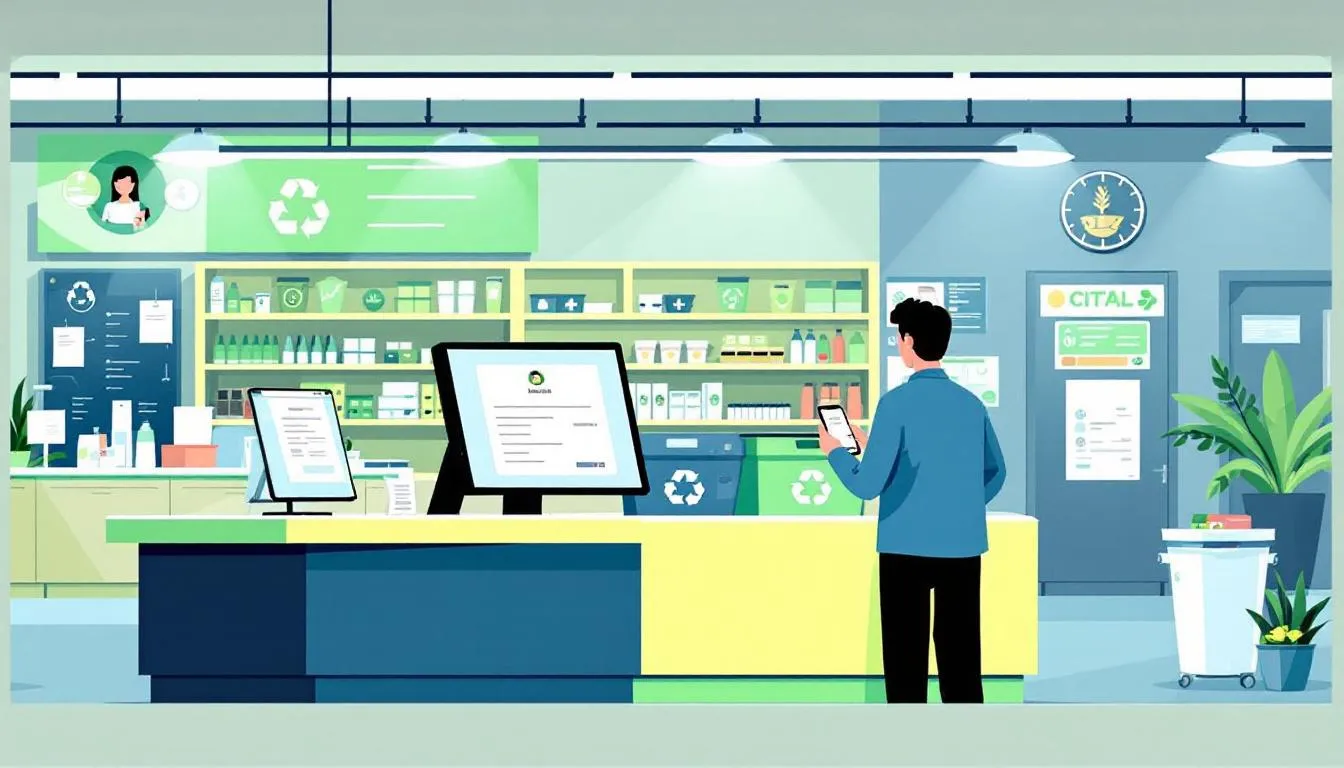
Switching to digital receipts represents a commitment to environmental sustainability and consumer health. Traditional paper receipts contribute significantly to waste, with millions of trees and billions of gallons of water being consumed annually for their production. The majority of these receipts end up in landfills, adding to the already overwhelming waste problem.
Digital receipts eliminate the need for paper, ink, and physical storage, thereby significantly reducing the environmental impact. When businesses adopt digital receipts, they not only cut down on waste but also save valuable resources and reduce their carbon footprint. This shift supports broader recycling efforts by reducing the volume of paper that needs to be recycled and processed.
Additionally, digital receipts align with the growing consumer demand for eco-friendly practices. Embracing digital receipts enhances retailers’ green credentials and appeals to environmentally conscious consumers. This small change can make a big difference in the fight against waste and deforestation, contributing to a healthier planet for future generations.
Benefits for Retailers Using Delta 1st POS
Delta 1st POS integrates various functions to enhance operational efficiency and reduce costs. The platform combines various functions into a single system, streamlining transactions and reducing the workload on staff. Retailers using Delta 1st POS can expect to see improvements across multiple areas, including cost savings, customer experience, and business processes.
Cost Savings
One of the most immediate benefits of switching to digital receipts is the significant cost savings. Eliminating the need for paper and ink saves businesses a substantial amount of money on printing expenses. The costs associated with purchasing paper supplies and managing physical storage are also drastically reduced, allowing businesses to allocate their resources more efficiently.
Additionally, digital receipts reduce the operational costs linked to maintaining physical storage for paper receipts. This not only saves money but also frees up valuable storage space that can be used for other items or purposes. These savings can be reinvested into the business, leading to further growth and development.
The long-term financial benefits of digital receipts are clear. Minimizing printing costs and reducing resource consumption improves businesses’ bottom line and contributes to environmental sustainability. This dual advantage makes digital receipts a key component of any retailer’s strategy to save money and protect the environment.
Enhanced Customer Experience
Digital receipts significantly enhance the customer experience by providing secure and easily accessible records of transactions. Customers no longer need to worry about losing paper receipts or dealing with clutter. Instead, they can access their receipts digitally, making it easier to keep track of purchases and manage returns.
Digital receipts add convenience through features like quick checkouts and personalized marketing strategies. Retailers can use the data obtained from digital receipts to create customer-specific offers, making transactions more relevant and engaging. This personalization fosters greater customer loyalty and engagement, as consumers appreciate the tailored experience.
Digital receipts also empower customers to make informed decisions that align with their values regarding sustainability. Promoting eco-friendly choices and providing insights into purchasing habits, digital receipts encourage responsible consumer behavior. This emphasis on sustainability can enhance customer relationships and loyalty, as more consumers prefer to support businesses that prioritize environmental responsibility.
Streamlined Business Processes
Digital receipts simplify record-keeping, making it easier for businesses to manage and track financial transactions efficiently on computers. Storing transaction data digitally reduces the time and effort needed for manual documentation, improving accuracy and saving time in account management.
Automating receipt delivery with digital receipts also significantly reduces administrative tasks for businesses. This automation not only streamlines operations but also enhances security by providing a clear, digital record of transactions, reducing the risk of fraud.
Digital receipts improve operational efficiency by simplifying documentation and reducing transaction management errors. This leads to better management of business functions and allows companies to focus on other critical areas, ultimately driving growth and success.
Environmental Impact of Digital Receipts
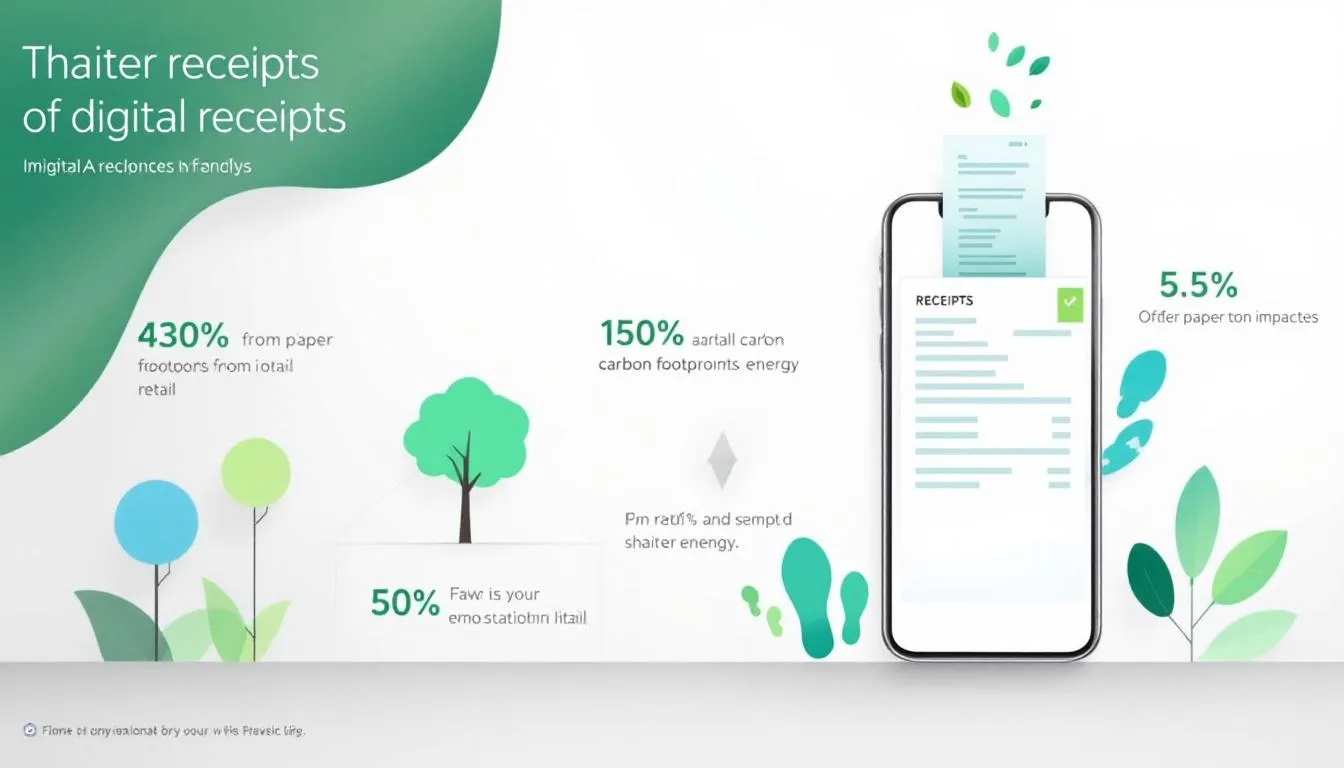
The environmental impact of digital receipts cannot be overstated. Traditional paper receipts contribute to massive deforestation and waste. Specifically:
- In the US alone, the production of paper receipts consumes over 3 million trees annually.
- Nearly 9 billion gallons of water are used each year in their production.
- This resource-intensive process depletes natural resources.
- It also contributes to significant carbon emissions.
Digital receipts can drastically reduce paper waste and deforestation. For instance, in Australia, eliminating paper receipts for a year could save about 1.5 million trees and 249 billion liters of water. These numbers highlight the immense resource savings that can be achieved through digital alternatives.
Digital receipts offer several environmental benefits:
- They produce at least three times less CO2 compared to paper receipts, significantly reducing carbon emissions.
- This reduction in carbon footprint is crucial in the fight against climate change.
- Adopting digital receipts aligns with sustainable packaging strategies, further reducing waste generated during the retail process.
Digital receipts offer an eco-friendly solution that benefits both the environment and businesses by providing valuable services.
Case Studies: Successful Implementation
Several retail businesses have successfully adopted Delta 1st POS digital receipts, reaping both environmental and operational benefits. A clothing retailer, for example, noted a 30% reduction in paper waste after switching to digital receipts. This significant decrease in waste helped the environment and improved the retailer’s green credentials.
Customers have reported increased satisfaction due to the convenience and ease of managing digital receipts. With digital records, customers no longer need to worry about losing receipts or dealing with clutter, enhancing their overall shopping experience.
Businesses implementing Delta 1st POS digital receipts have experienced environmental benefits and improved customer relationships. These case studies demonstrate the tangible advantages of adopting digital receipts and inspire other retailers to make the switch.
How to Transition to Digital Receipts
Transitioning to digital receipts requires careful planning and consideration of various factors. First, identify your business’s specific needs and legal requirements before implementing digital receipt software. Understanding these factors ensures a smooth transition and compliance with regulations.
Defining goals, such as regulation compliance or sustainability, helps guide the selection of digital receipt solutions. Retailers can issue digital receipts via:
- QR codes
- NFC
- Retailer apps Each method offers distinct advantages.
Trialing digital receipt software in selected stores gauges its effectiveness and gathers details on availability before widespread purchase implementation in the long run. This developed technology approach ensures that any potential issues are addressed, and the transition is as seamless as possible, promoting progress.
The initiative of the French government to require businesses to ask customers if they prefer a digital receipt instead of automatically printing one is a step towards reducing waste and promoting ownership, sustainability, and society.
Overcoming Common Challenges
Adopting digital receipts presents its own set of challenges. A significant hurdle is customer reluctance to move away from traditional paper formats due to familiarity and perceived security. Businesses need to educate customers about the benefits and security of digital receipts to address these concerns.
Concerns about data privacy and cybersecurity deter both businesses and consumers from fully engaging with digital receipt solutions. Ensuring digital receipt systems are secure and protecting customer data is crucial for gaining trust and acceptance.
Fostering acceptance of digital receipts requires seamless integration into existing workflows and emphasizing efficiency benefits. Highlighting advantages like reduced waste and improved customer ability experience can help overcome resistance and encourage adoption.
Integrating Digital Receipts with Other Sustainable Practices
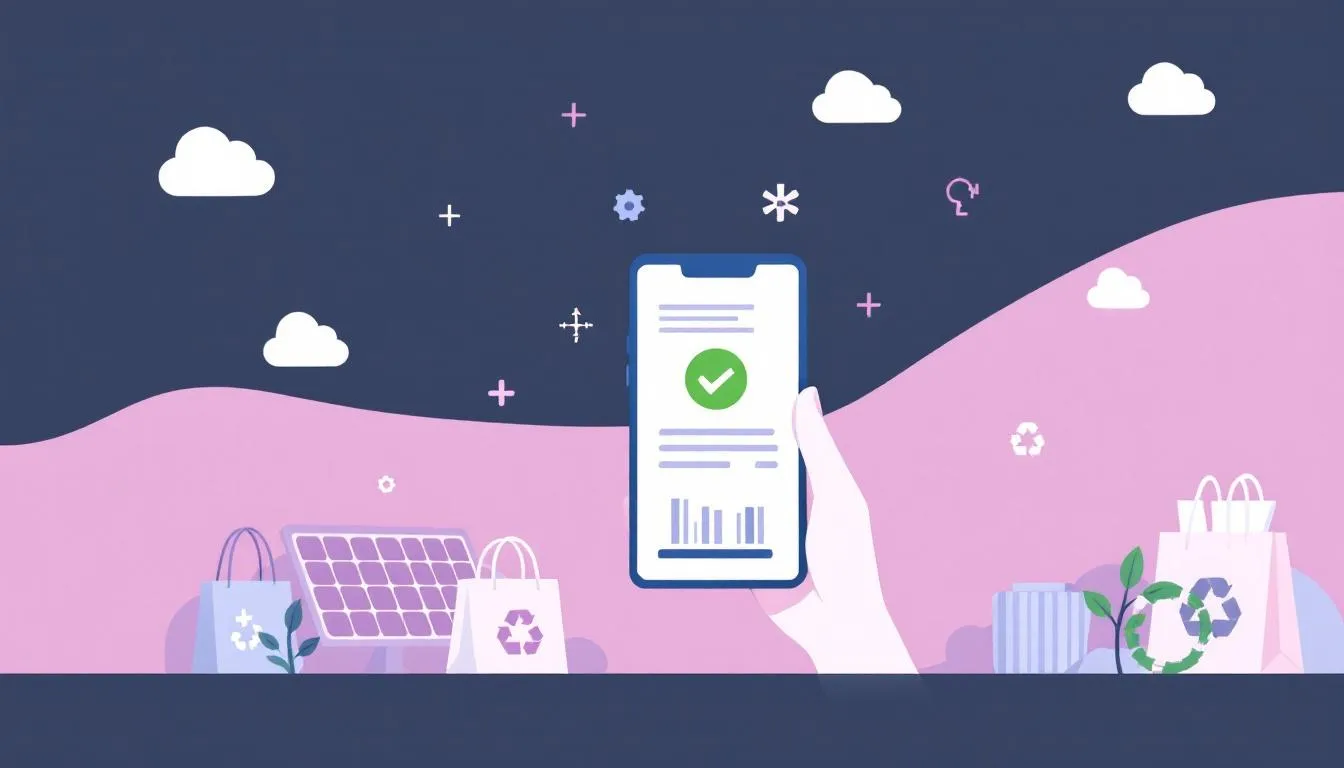
Digital receipts play an essential role in supporting eco-friendly initiatives by minimizing paper waste. Digital receipts help alleviate pressure on waste management systems by reducing the volume of paper in landfills.
Digital receipts simplify transaction data management, allowing retailers to analyze customer behavior and improve marketing strategies. This integration of digital receipts with other sustainable practices amplifies the impact of eco-friendly efforts and enhances customer engagement.
Adopting digital receipts allows businesses to contribute to broader sustainability goals, reduce their environmental footprint, and engage customers meaningfully. This holistic approach to sustainability not only benefits the environment but also strengthens customer relationships and loyalty.
Community Engagement and Education
Educating communities about the benefits of digital receipts fosters a culture of environmental responsibility. Consumer resistance can be mitigated through education on the environmental benefits and enhanced convenience of digital receipts. Research indicates that many consumers mistakenly believe digital receipts have a higher carbon footprint than paper receipts, emphasizing the need for education on the actual environmental impact of digital technologies.
Campaigns promoting the option for paper receipts highlight the importance of informing consumers about environmental facts and the safety of their personal information. Engaging with the community about the benefits of digital receipts can help dispel myths surrounding paper consumption and reinforce the importance of sustainably managed forests.
Emphasizing digital receipts engages customers in sustainability discussions, highlighting the environmental value benefits of reducing paper waste.
Long-Term Benefits for Businesses and the Environment
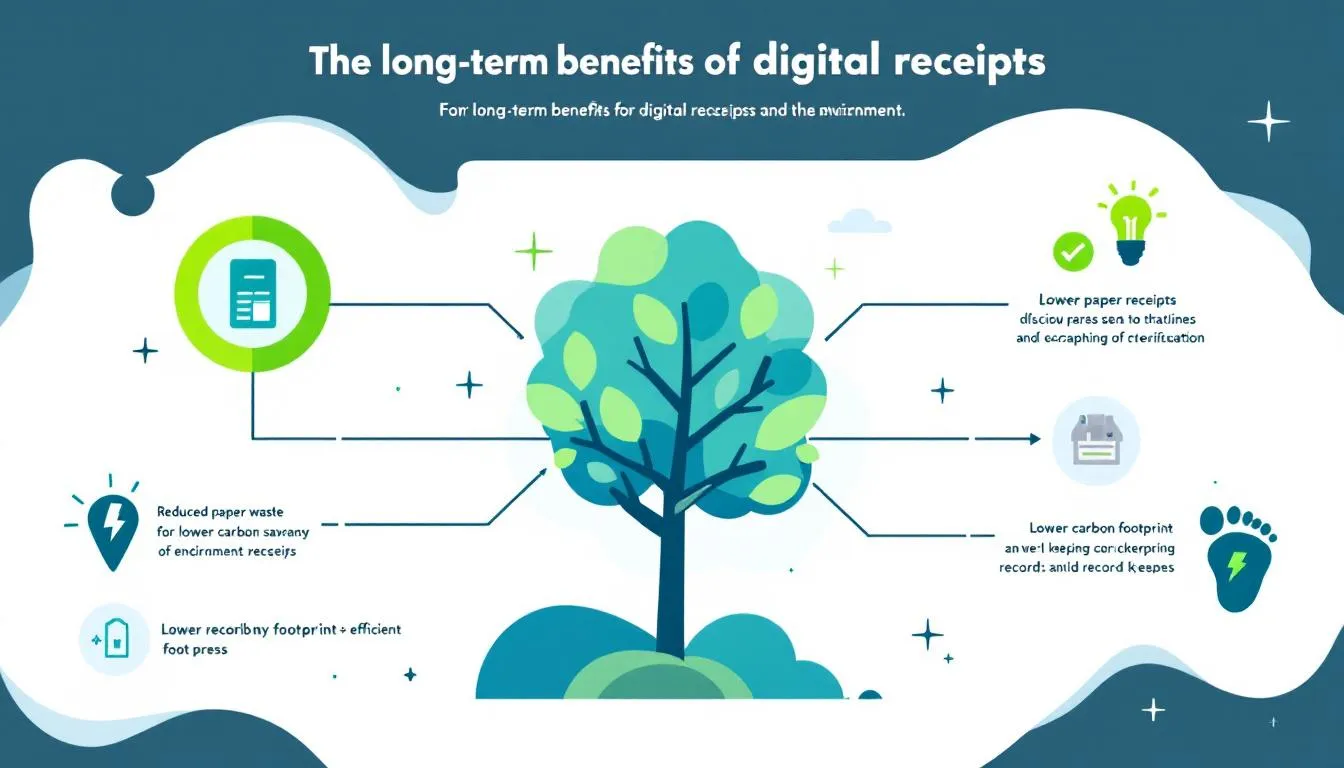
Digital receipts eliminate the harmful chemicals found in thermal paper, promoting consumer health. This shift represents a sustainable innovation that offers long-term benefits for both retailers and the environment.
Over time, digital receipts contribute to significant reductions in hazardous waste and pollution. Minimizing the use of paper and ink allows businesses to reduce their environmental footprint and support broader recycling efforts. This sustainable approach benefits the environment and enhances a retailer’s reputation as an eco-conscious company.
Digital receipts provide an opportunity for small businesses to differentiate themselves by adopting innovative, eco-friendly practices. This commitment to sustainability attracts environmentally conscious customers and drives business growth while reducing the overall impact on landfills and the environment.
Ready to start your eco friendly retail journey? Contact Delta 1st today to explore how our POS platform can help transform your business.
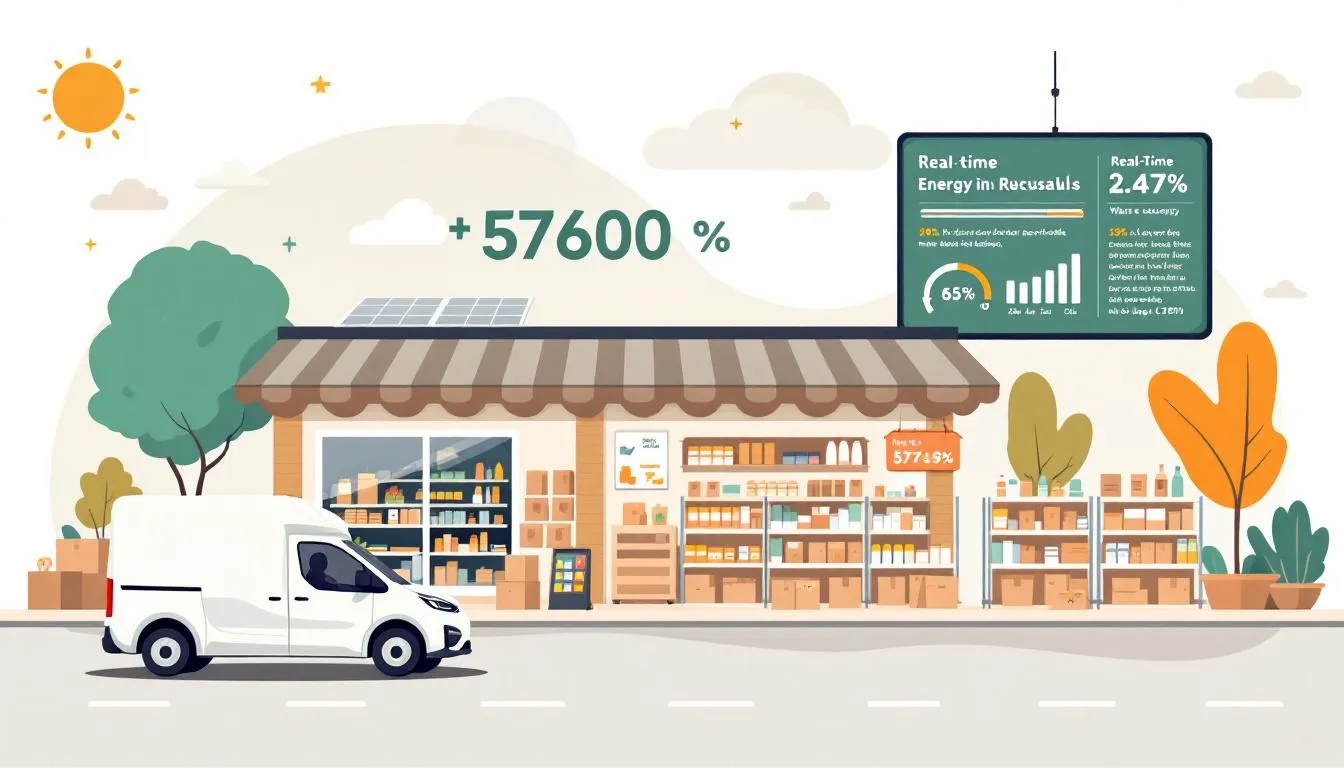
Ready to embrace a more sustainable and efficient way of doing business? Delta 1st offers personalized consultations and demos to help businesses select the most suitable POS solutions tailored to their unique needs. With a user-friendly interface and robust support, Delta 1st POS can enhance your operations, streamline transactions, and elevate customer experience.
Our platform includes features for tracking inventory, managing team operations, and syncing sales data across multiple locations, ensuring efficient payment processing and management.
Digital receipts are a powerful tool for retailers looking to reduce waste, cut costs, and enhance customer experience. By adopting Delta 1st POS, businesses can streamline their operations, improve record-keeping, and contribute to a more sustainable future. The environmental benefits, including reduced paper waste and lower carbon emissions, make digital receipts an essential part of any eco-friendly retail strategy.
The transition to digital receipts is not just a technological upgrade but a commitment to sustainability and customer satisfaction. By integrating digital receipts with other sustainable practices, educating communities, and overcoming common challenges, businesses can enjoy long-term benefits for both themselves and the environment. Embrace the change today and join the movement towards a greener, more efficient retail experience.
Let Delta 1st POS help transform your business into an eco-friendly retail powerhouse.
